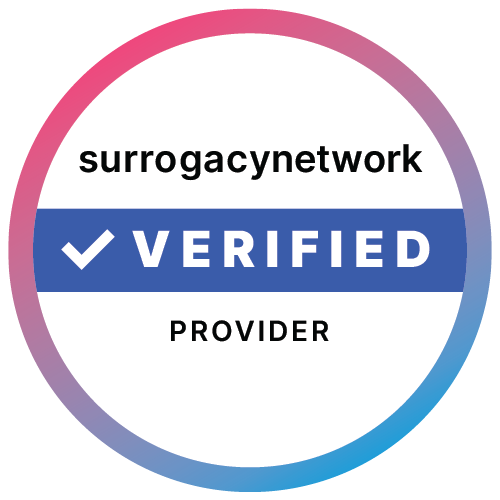SURROGACY IN NEW JERSEY
As a top surrogacy agency in Philadelphia, we frequently get the pleasure of serving enthusiastic surrogate candidates and intended parents who live in New Jersey.
The surrogacy process in New Jersey and Pennsylvania is fully supported by the law. In fact, New Jersey surrogacy laws are quite similar to the laws in neighboring Pennsylvania.
The purpose of this page is to inform prospective intended parents about the surrogacy process in New Jersey and how we in Philadelphia can serve as a surrogate agency for your community.

Very seldom do any of us get a chance to change another person’s life in a meaningful way. That’s why a woman choosing to serve as a gestational carrier (surrogate) is considered such a grand and giving gesture.
When women choose to become a surrogate, they do get the chance to make a significant and positive impact on the lives of Intended Parents.
WHAT IS SURROGACY?
TWO KINDS OF SURROGACY

SURROGACY PROCESS

SURROGACY COSTS
Surrogacy costs can vary from state to state and agency to agency. Intended Parents pay all the costs associated with a surrogacy journey, both the surrogacy agency fee and the surrogate compensation.
The surrogate’s compensation typically includes a base fee, plus the following list of additional fees and reimbursements:
- Monthly minimum allowance
- Embryo transfer compensation
- Medical and life insurance coverage during the pregnancy
- Clothing allowance
- Invasive procedure compensation
- Lost wages from attending appointments
- Cesarean section compensation
- Breastmilk storage compensation
- Childcare and housekeeping reimbursement

SURROGATE REQUIREMENTS
Before a woman can become a surrogate, she must meet requirements that are set forth by the agency and fertility clinic.
Given the importance of surrogacy to both the surrogate and the intended parents, the surrogacy requirements are quite strict. Here is a list of the key surrogate requirements for the Surrogacy Center of Philadelphia. We abide by standards set by the American Society of Reproductive Medicine.
- Must be between the ages of 21 and 40
- Must have successfully delivered at least one healthy baby with no history of pregnancy or delivery complications
- Must be in good physical health, including a BMI of between 20-32
- Must be mentally/emotionally stable with no history of serious mental illness
- Must be financially stable
- Last child delivery must have been at least 6 months prior, preference given to surrogates who are currently raising a child
- No history of illicit drug use or criminal activity
- Must have a stable home environment
- Must be willing to comply with several medical directives

PREPARING FOR SURROGACY
The process of surrogacy requires a significant investment from both the intended parents and the surrogate. For the intended parents, there will be a significant financial investment. However, they will also be investing their emotional welfare in the promise of getting a healthy baby to love and raise.
For the surrogate, the investment is physical and emotional. During the pregnancy, their body will go through changes and stress. From an emotional standpoint, they will have to be strong to cope with the stressors that come with the surrogacy process and the responsibility of carrying another person’s baby. One can never underestimate the fortitude a woman needs to do that.
Surrogates can be proud of being the kind of person that would help others so they can experience the joys of raising a child. The intended parents get the gift of parenthood, something they might not have otherwise experienced had it not been for surrogacy.

CHOOSE THE BEST SURROGACY AGENCY FOR YOUR NEEDS


